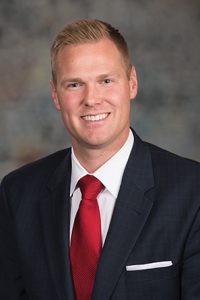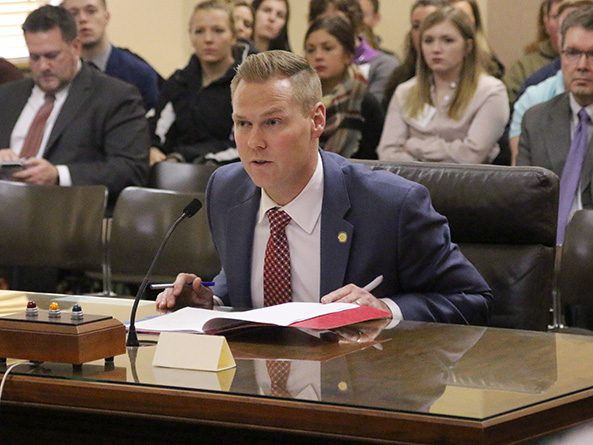Judge’s ok suggested before sex offender access to children
Members of the Judiciary Committee heard testimony Feb. 9 on a bill that would provide stronger protections for children against registered sex offenders.

Under LB60, introduced by Omaha Sen. Brett Lindstrom, registered sex offenders found guilty of felony child sexual abuse would not be allowed unsupervised parental access to a child unless a judge finds that the adult presents no significant risk to the child.
Lindstrom said a recent Nebraska Supreme Court decision found that a father could not prevent his child from living in the same home as his ex-wife’s new husband, a registered sex offender.
He said LB60 would shift the burden of proof to the person seeking to allow unsupervised contact with a child to show that such contact would be in the child’s best interest.
“[The bill] reaffirms a strong public policy that we must protect our children and provides more guidance to our judicial branch to protect them,” he said.
Written notice also must be provided to all other persons with custody or access rights before a registered sex offender would be allowed to have unsupervised access or reside in the same home as a child.
Stephanie Huddle, representing the Nebraska Coalition to End Sexual and Domestic Violence, testified in support of the bill. She said 34 percent of sexual abuse is perpetrated by family members and can have long-lasting effects on children.
“Children who are sexually abused may develop phobias, suffer from nightmares and engage in regressive behaviors,” she said. “[LB60] would ensure additional safeguards for Nebraska children and peace of mind for their parents.”
Opposing the bill was Derek Logue, an anti-registry activist and registered sex offender. As a group, he said, sex offenders have low rates of recidivism.
“The written notification requirement seems to be more about humiliation than personal safety,” he said. “Those who share my label are assumed guilty until proven innocent. How can anyone reasonably expect a registered citizen to meet such a burden when society is so quick to believe the worst about such people?”
The committee took no immediate action on the bill.


